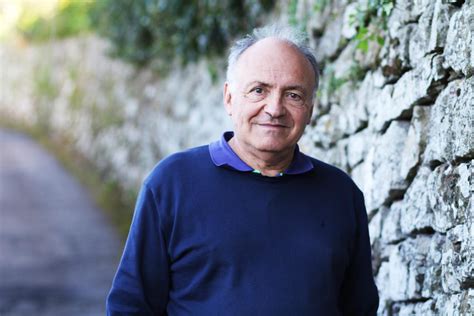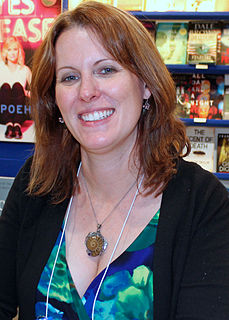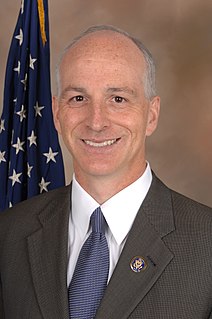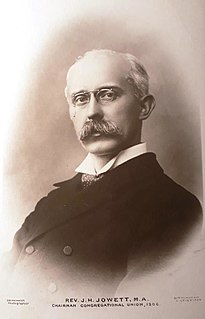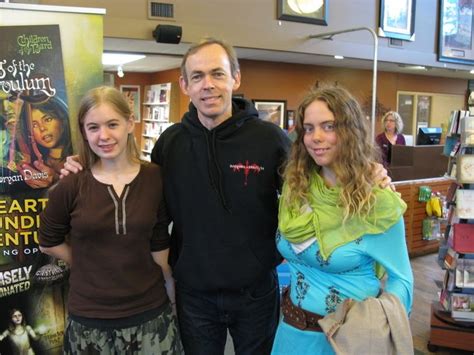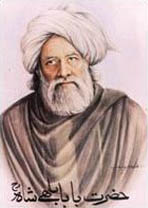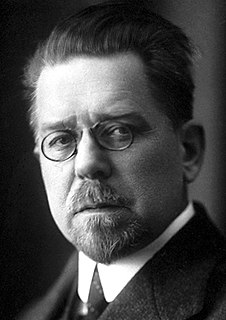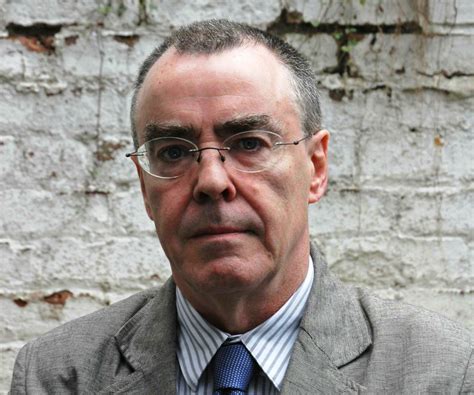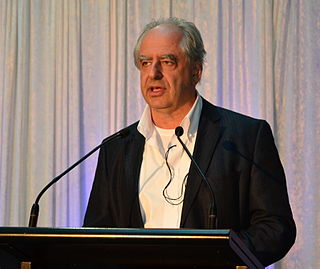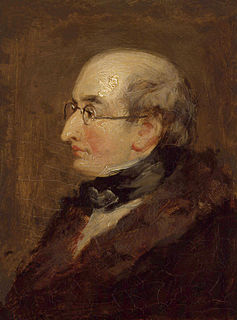Top 844 Battles Quotes & Sayings - Page 14
Explore popular Battles quotes.
Last updated on December 12, 2024.
There is no way to peace along the way of safety. For peace must be dared. It is itself the great venture and can never be safe. Peace is the opposite of security. To demand guarantees is to want to protect oneself. Peace means giving oneself completely to God's commandment. Wanting no security, but in faith and obedience laying the destiny of the nations in the hand of almighty God. Not trying to direct it for selfish purposes. Battles are won not with weapons, but with God. They are won when the way leads to the cross.
A scientist's life, the author says, is indeed conflictual, formed by battles, defeats, and victories: but the adversary is always and only the unknown, the problem to be solved, the mystery to be clarified. It is never a matter of civil war; even though of different opinions, or of different political leanings, scientists dispute each other, they compete, but they do not battle: they are bound together by a strong alliance, by the common faith "in the validity of Maxwell's or Boltzmann's equations," and by the common acceptance of Darwinism and the molecular structure of DNA.
The reason why many fail in battle is because they wait until the hour of battle. The reason why others succeed is because they have gained their victory on their knees long before the battle came. Anticipate your battles; fight them on your knees before temptation comes, and you will always have victory.
That abominable and sensual act called reading the newspaper, thanks to which all the misfortunes and cataclysms in the universe over the last twenty-four hours, the battles which cost the lives of fifty-thousand men, the murders, the strikes, the bankruptcies, the fires, the poisonings, the suicides, the divorces, the cruel emotions of statesmen and actors, are transformed for us, who don't even care, into a morning treat, blending in wonderfully, in a particularly exciting and tonic way, with the recommended ingestion of a few sips of cafe au lait.
Then said he, ’I am going to my Father’s; and though with great difficulty I am got hither, yet now I do not repent me of all the trouble I have been at to arrive where I am. My sword I give to him that shall succeed me in my pilgrimage, and my courage and skill to him that can get it. My marks and scars I carry with me, to be a witness for me that I have fought His battles who now will be my rewarder.’.... So he passed over, and all the trumpets sounded for him on the other side.
Anglers have a way of romanticizing their battles with fish and of forgetting that the fish has a hook in his mouth, his gullet, or his belly and that his gameness is really an extreme of panic in which he runs, leaps, and pulls to get away until he dies. It would seem to be enough advantage to the angler that the fish has the hook in his mouth rather than the angler.
Man is about to be an automaton; he is identifiable only in the computer. As a person of worth and creativity, as a being with an infinite potential, he retreats and battles the forces that make him inhuman. The dissent we witness is a reaffirmation of faith in man; it is protest against living under rules and prejudices and attitudes that produce the extremes of wealth and poverty and that make us dedicated to the destruction of people through arms, bombs, and gases, and that prepare us to think alike and be submissive objects for the regime of the computer.
So we have a choice to make. We can once again let Washington's bad habits stand in the way of progress. Or we can pull together and say that in America, our destiny isn't written for us but by us. We can place good ideas ahead of old ideological battles, and a sense of purpose above the same narrow partisanship. We can act boldly to turn crisis into opportunity and, together, write the next great chapter in our history and meet the test of our time.
Thus is Jesus in all respects fitted for his mighty work of redeeming. He is very man and very God. He is the seed of the woman, the seed of Abraham, the seed of David, the son of Mary, yet God over all, blessed forever. Thus He can bear our sins; He can sympathize with our sorrows; He can fight our battles; He can love as a man, a fellow man, bone of our bone, and flesh of our flesh.
Then he is a monster!" the Prince crowed, "and I must slay him at once. The Formula works!" "Your Formula must result in a great deal of fighting," I mused. "Oh, yes, when applied correctly mighty and noble battles result! Of course I always win—the value of Prince X is a constant. It cannot be lesser than that of Monster Y—this is the Moral Superiority Hypothesis made famous five hundred years ago by my ancestor Ethelred, the Mathematician-King. We have never seen his equal, in all these centuries.
One cannot make command decisions simply by assessing the tactical situation and going ahead with whatever course of action will do the most harm to the enemy with a minimum of death and damage to your own men and materiel. Modern warfare has become very complex, especially during the last century. Wars are won not by a simple series of battles won, but by a complex interrelationship among military victory, economic pressures, logistic maneuvering, access to the enemy’s information, political postures—dozens, literally dozens of factors.
Something similar happens on the other side of the equation: Giving kindness does us as much good as receiving it. . . . The true benefit of kindness is being kind. Perhaps more than any other factor, kindness gives meaning and value to our life, raises us above our troubles and our battles, and makes us feel good about ourselves.
I thought you were supposed to be the champion of your people,' I said. I live because I need to do that. For anyone who is left.' Don't you see? No one will be left. Protect them now or there will be no one to protect!' This is a battle that goes on and on. It never ends. You're too young to understand. No! You're too much of a coward to fight.' I was sick of lies and secrets and of battles so old we had to erase who we were to fight back. And still we lost. Still we were tied to posts.
I knew right then you were the only one for me." He pulled her hand from his face, kissed her palm, then pressed it flat against his chest. "Beatings, battles, fights. No matter how bleak the circumstance, no matter how my soul despaired ... this heart never once gave up." His voice deepened, went thick with emotion. "I've a theory as to why. Do you want to hear it?" She nodded. "This heart is yours. It's yours," he said. "It always will be.
It is important to understand that there are two separate battles taking place in Iraq: there is the political rift between the Sunnis, Shia and the Kurds and there is a foreign extremist group - ISIS - trying to take advantage of the political environment through violence. If the Iraqis can resolve their political differences, it will be far more difficult for ISIS to thrive. Moving forward, we should continue to evaluate additional steps to help combat ISIS as we see what the Iraqis are willing to do politically, but we must also firmly guard against mission creep.
I hope we don't have to keep going back over the same territory and winning the same rights over and over again. The battle for birth control. The battle for abortion. The parity of women's health. It's very depressing to think that you win these rights, but then you have to win them again, and again, and again, and fight the same battles over and over.
Any issue and any problem, no matter what height you look at it from, no matter how much you extend past the first fractal, it's still a fractal of something that emanates from within your consciousness - from within the human consciousness. And it'll move on and manifest itself externally, and then those are what we pick up as societal ills. But all these battles we're fighting are internal. For me, it's reconciling hope with dread and trying to cut out some place in my mind where my heart can be protected a little bit.
Puerto Ricans are Americans. We've been American citizens since 1917. We fought the same battles, made the same sacrifices. We've lost our land in the same way that Native Americans lost their land, and we've been the subject of discrimination and racism in the same way that African Americans have. We've suffered the full spectrum of oppression, and yet we've been off the map 4,000 miles away so we haven't even been able to argue our case.
Every man who is not for us in this prolonged struggle for liberty is responsible for the present degradation of the mothers of the race. It is pitiful to see how few men ever have made our cause their own, but while leaving us to fight our battle alone, they have been unsparing in their criticism of every failure. Of all the battles for liberty in the long past, woman only has been left to fight her own, without help and with all the powers of earth and heaven, human and divine, arrayed against her.
Instead of waiting until crisis problems develop which result in panic praying for others, we need to trust God to protect them as we pray Spirit-led, thoughtful, caring prayers before the problems overwhelm them, and they are unable to cope. We need to engage in major battles, not just minor skirmishes, moving from surface praying to in-depth praying. We need to pray both defensively and offensively.
I am not a historian, but I find myself being more and more fascinated by history and now I find myself reading more and more about history. I am very interested in Napoleon, at the present: I'm very interested in battles, in wars, in Gallipoli, the First World War and so on, and I think that as I age I am becoming more and more historical. I certainly wasn't at all in my early twenties.
This soldier, I realized, must have had friends at home and in his regiment; yet he lay there deserted by all except his dog. I looked on, unmoved, at battles which decided the future of nations. Tearless, I had given orders which brought death to thousands. Yet here I was stirred, profoundly stirred, stirred to tears. And by what? By the grief of one dog. Napoleon Bonaparte, on finding a dog beside the body of his dead master, licking his face and howling, on a moonlit field after a battle. Napoleon was haunted by this scene until his own death.
It is in the field of prayer that life's critical battles are lost or won. We must conquer all our circumstances there. We must first of all bring them there. We must survey them there. We must master them there. In prayer we bring our spiritual enemies into the Presence of God and we fight them there. Have you tried that? Or have you been satisfied to meet and fight your foes in the open spaces of the world?
I wonder, what's in a book while it's closed. Oh, I know it's full of letters printed on paper, but all the same, something must be happening, because as soon as I open it, there's a whole story with people I don't know yet and all kinds of adventures, deeds and battles. And sometimes there are storms at sea, or it takes you to strange cities and countries. All those things are somehow shut in a book. Of course you have to read it to find out. But it's already there, that's the funny thing. I just wish I knew how it could be.
Every generation has its war. I have just been reminded of mine. It ended in 1989, 43 years after it began, the longest war Britain fought and certainly the most expensive. Its climax was total victory. Yet there was no parade, no medals, no colours hung in cathedrals. The Cold War saw no battles and cost almost no blood. Where there is no blood there is no glory and hence no history. Asked What did you do in the war, Daddy?, I could say only that I paid my taxes and left it at that.
If we continue to tell ourselves the popular myths about racial progress or, worse yet, if we say to ourselves that the problem of mass incarceration is just too big, too daunting for us to do anything about and that we should instead direct our energies to battles that might be more easily won, history will judge us harshly. A human rights nightmare is occurring on our watch.
Battles are fought in our minds every day. When we begin to feel the battle is just too difficult and want to give up, we must choose to resist negative thoughts and be determined to rise above our problems. We must decide that we're not going to quit. When we're bombarded with doubts and fears, we must take a stand and say: "I'll never give up! God's on my side. He loves me, and He's helping me! I'm going to make it!"
Anything that I'm doing I think I always come at it from an outsider perspective. The first like real front page story that I had for the Times was about how after decades of battles over public restrooms in New York City, effectively chain stores had become the public restroom of choice for New Yorkers, it's sort of a silly little thing, but coming as an outsider, I was like 'Oh this is actually really interesting.'
History does nothing, possesses no enormous wealth, fights no battles. It is rather man, the real, living man, who does everything, possesses, fights. It is not History, as if she were a person apart, who uses men as a means to work out her purposes, but history itself is nothing but the activity of men pursuing their purposes.
Actively we have woven ourselves with the very warp and woof of this nation, - we have fought their battles, shared their sorrow, mingled our blood with theirs, and generation after generation have pleaded with a headstrong, careless people to despise not Justice, Mercy and Truth, lest the nation be smitten with a curse. Our song, our toil, our cheer and warning have been given to this nation in blood-brotherhood. Are not these gifts worth the giving? Is not this worth the striving? Would America have been America without her Negro People?
When we let go of our battles and open our heart to things as they are, then we come to rest in the present moment. This is the beginning and the end of spiritual practice. Only in this moment can we discover that which is timeless. Only here can we find the love that we seek. Love in the past is simply memory, and love in the future is fantasy. Only in the reality of the present can we love, can we awaken, can we find peace and understanding and connection with ourselves and the world.
From where I sit, battles are hard. I’ve written my share. Sometimes I employ the private’s viewpoint, very up close and personal, dropping the reader right into the middle of the carnage. That’s vivid and visceral, but of necessity chaotic, and it is easy to lose all sense of the battle as a whole. Sometimes I go with the general’s point of view instead, looking down from on high, seeing lines and flanks and reserves. That gives a great sense of the tactics, of how the battle is won or lost, but can easily slide into abstraction.
The saddest symptom about many so-called Christians is the utter absence of anything like conflict and fight against spiritual apathy in their Christianity. They eat, they drink, they dress, they work, they amuse themselves, they get money, they spend money, they go through a brief round of formal religious services once or twice every week. But of the great spiritual warfare - its watchings and strugglings, its agonies and anxieties, its battles and contests - of all things they appear to know nothing at all. Let us take care that this case is not our own.
There is no other course but the one we have chosen, except the course of humiliation and darkness, after which there will be no bright sign in the sky or brilliant light on earth? All this will make us more patient and steadfast, and better prepared for the battle which God blesses and which good men support. Then there will only be a glorious conclusion, where a brilliant sun will clear the dust of battle, and where the clouds of battles will be dispelled.
Fantasy stories open our eyes to an unseen world and train our minds to see beyond the visible. In the New Testament context, this is where our real battles are fought. Good fantasy will reveal the hidden powers of evil that threaten the hero's life and upset his journey. Good fantasy focuses on how a hero finds victory when he learns that he can't win by himself, so he submits to the higher power in faith and obedience.
If you think you are beaten, you are. If you think you dare not, you don't. If you'd like to win but think you can't it's almost certain you won't. Life's battles don't always go to the stronger or faster man, but sooner or later, the man who wins is the man who thinks he can. A happy person is not a person with a certain set of circumstances, but rather a person with a certain set of attitudes. I may not be able to change the world I see around me, but I can change the way I see the world within me.
Better than a thousand hollow words Is one word that brings peace. Better than a thousand hollow verses Is one verse that brings peace. Better than a hundred hollow lines Is one line of the dharma, bringing peace. It is better to conquer yourself Than to win a thousand battles. Then the victory is yours. It cannot be taken from you, Not by angels or by demons, Heaven or hell.
Fire supposed he needed to be there in order to give rousing speeches and lead the charge into the fray, or whatever is was commanders did in wartime. She resented his competence at something so tragic and senseless. She wished he, or somebody, would throw down his sword and say, 'Enough! This is a silly way to decide who's in charge!' And it seemed to her, as the beds in the healing room filled and emptied and filled, that these battles didn't leave much to be in charge of. The kingdom was already broken, and this war was tearing the broken pieces smaller.
Every lord's mansion stands on the foundation of your bones, soldier, every field has been saturated with your sweat, and you, peasant, even if you worked your arms down to the stub, if you won a hundred battles, and faithfully gave the last drop of your blood for your country, you would always be a slave. There is no land for you, no heaven, no shelter, not even a doghouse where you could rest your poor head. You are the last before God and before people, the last one.
Defeat is for the valiant. Only they will know the honour of losing and the joy of winning I am not here to tell you that defeat is a part of life: we all know that. Only the defeated know Love. Because it is in the realm of love that we fight our first battles – and generally lose. I am here to tell you that there are people who have never been defeated. They are the ones who never fought. They managed to avoid scars, humiliations, feelings of helplessness, as well as those moments when even warriors doubt the existence of God.’’ Manuscript Found In Accra – Paulo Coelho
The Battle for the Philippines was the greatest naval battle in history, judged in terms of the number of ships taking part, the number of ships sunk, and the importance of its outcome. It included every form of naval warfare of the 20th century: gunnery duels between battleships; destroyer battles at night and by day, as ferocious and sustained as any at the Battle of Jutland; submarines that stalked the depths; sinking many ships; and finally, carrier warfare on a scale never dreamed of even by the most ardent enthusiasts of air warfare at sea.
Many of the situations that we've talked about whether it's the San Carlos, whether it's the Navajo fighting for their land rights or fighting to develop their land to try and provide decent jobs on the reservation. The backdrop to all that, the reason that we have those battles is that history of dispossession. The story isn't over for American-Indians. ... You know, how could any tribal member think about giving away something that means so much to the tribe?
I am reminded, now, of Leonardo's advice to painters: You should fix your eyes, he says, on certain walls stained with damp. You will see in these the likenesses of divine landscapes, adorned with mountains, ruins, rocks, extensive plains; and you will see there battles and strange figures engaged in violent actions. For in such walls the same thing happens as in the sound of church bells, in whose reverberations you may find every word imaginable.
Unless you're willing to fight and refight the same battles until you go blue in the face, drive the people you work with nuts going over every detail to make certain you've got it right, and then take hit after unfair hit accusing you of bias, there's no use even trying. You have to love it, and I do. You just hope it strikes a spark somewhere in the critical mass of public opinion and helps some people to resist further the seductions of political and corporate advertising.
My grandfather was a member of Parliament for 40 years. Obviously we're talking here South Africa, a whites only parliament. I grew up in a family that was very involved with the legal battles against apartheid—the great treason trials in the 1950s and early '60s, and later with the legal resources center that my mother founded. My father was involved with a number of very prominent cases that had political aspects to them, whether it was the inquest into the Sharpeville Massacre, the death of Steve Biko, or one of the trials of Nelson Mandela.
The explanation of the propensity of the English people to portrait painting is to be found in their relish for a Fact. Let a man do the grandest things, fight the greatest battles, or be distinguished by the most brilliant personal heroism, yet the English people would prefer his portrait to a painting of the great deed. The likeness they can judge of; his existence is a Fact. But the truth of the picture of his deeds they cannot judge of, for they have no imagination.
I'm the smartest man in the world. Once I wore a cape in public, and fought battles against men who could fly, who had metal skin, who could kill you with their eyes. I fought CoreFire to a standstill, and the Super Squadron, and the Champions. Now I have to shuffle through a cafeteria line with men who tried to pass bad checks. Now I have to wonder if there will be chocolate milk in the dispenser. And whether the smartest man in the world has done the smartest thing he could do with his life.
Over the last six months, I've seen what these two futures look like. And six months from now, we'll all be living in one, or the other. But only one. A country where our president either has our back or turns his back; a country that honors our foremothers by moving us forward, or one that forces our generation to re-fight the battles they already won; a country where we mean it when we talk about personal freedom, or one where that freedom doesn't apply to our bodies and our voices.
I have this very kind of like heterodox idea of what an education is, what underpins identity. I don't think I'm very easily pigeon holed in any of those boxes, so I confront this. I have a staff full of young people who came up in a very different tradition and who feel very fired up about the big identity battles. I listen and I try to navigate them, but I don't find them mapping onto my life in a personal way which is, which is hard.
LIGHT FROM WITHIN my friend, cancer got you damn it: you had it beat for seven years at least. how did it come back? Why all that pain. again. and you, such a fighter you fought me over and over with tears and words and promises. you fought for me with honesty and a light so bright it hurts my heart. sweet lorna. at peace now finally no more battles, just light from within a flickering candle in the dark burns with you.
I was just a seventeen-year-old kid, going to Times Square to participate in this left-wing demonstration. The signs were for peace and justice and so on. But then I was attacked by police mounted on horseback and on foot. Before I knew it, I was clubbed and knocked unconscious. So it gave me a radical view of the United States, a critical view of the role of the state and of the instruments of the state - the police, the Army, and so on - as not being neutral at all in political battles, but being generally against workers and against striking people, against dissenters of all kinds.
I was shocked when they told me congratulations, you won, that's the good news. Then the bad news is that you have six battles next week. That was a bit of a shocker. I was exhausted. And I had Chopped shooting that same week. I didn't have a sous chef lined up; I thought that was bad karma to try to think ahead. So I scrambled. I scrambled the jets, took off and we bombed our target. I think it's gone well.
It is disgusting to notice the increase in the quantity of coffee used by my subjects, and the amount of money that goes out of the country as a consequence. Everybody is using coffee; this must be prevented. His Majesty was brought up on beer, and so were both his ancestors and officers. Many battles have been fought and won by soldiers nourished on beer, and the King does not believe that coffee-drinking soldiers can be relied upon to endure hardships in case of another war.
Each thing organizes the space around it, rebuffing or sidling up against other things; each thing calls, gestures, beckons to other beings or battles them for our attention; things expose themselves to the sun or retreat among the shadows, shouting with their loud colors or whispering with their seeds; rocks snag lichen spores from the air and shelter spiders under their flanks; clouds converse with the fathomless blue and metamorphose into one another; they spill rain upon the land, which gathers in rivulets and carves out canyons.
Battles, revolutions, pestilence, famine, and death, are never the effect of those natural causes, which we experience. Prodigies,omens, oracles, judgments, quite obscure the few natural events, that are intermingled with them. But as the former grow thinner every pagewe soon learn, that there is nothing mysterious or supernatural in the case, but that all proceeds from the usual propensity of mankind towards the marvellous, and that, though this inclination may at intervals receive a check from sense and learning, it can never be thoroughly extirpated.
Call listened with amusement--not that the incident hadn't been terrible. Being decapitated was a grisly fate, whether you were a Yankee or not. But then, amusing things happened in battle, as they did in the rest of life. Some of the funniest things he had ever witnessed had occurred during battles. He had always found it more satisfying to laugh on a battlefield than anywhere else, for if you lived to laugh on a battlefield, you could feel you had earned the laugh. But if you just laughed in a saloon, or at a social, the laugh didn't reach deep.











